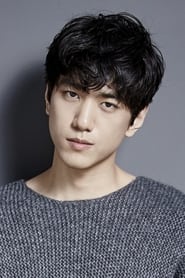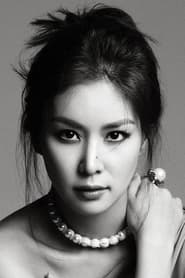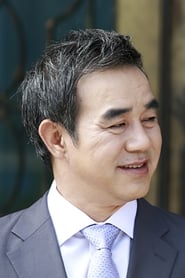
Ask Your Own Question
What is the plot?
In the opening scenes of "Ms. Perfect," we are introduced to the protagonist, a successful and seemingly perfect woman named Han Seung-Joo, who is a meticulous and highly organized career woman. She is portrayed as someone who has her life in order, balancing her demanding job with her personal life. However, beneath her polished exterior, she struggles with the pressures of societal expectations and the fear of failure.
As the story unfolds, Seung-Joo's life takes a turn when she meets a charming and carefree man named Kim Joon-Ho. Their initial encounter is filled with playful banter, and Joon-Ho's laid-back attitude contrasts sharply with Seung-Joo's structured life. Despite her reservations, Seung-Joo finds herself drawn to him, and they begin to develop a romantic relationship. This relationship serves as a catalyst for Seung-Joo to confront her own insecurities and the rigid standards she has set for herself.
As their relationship deepens, Seung-Joo faces challenges at work. She is tasked with leading a major project that could determine her future at the company. The pressure mounts as she navigates office politics and the expectations of her superiors. During this time, Joon-Ho encourages her to embrace spontaneity and to let go of her need for perfection. This advice resonates with Seung-Joo, and she begins to make small changes in her life, allowing herself to be more flexible and open to new experiences.
However, the tension escalates when Seung-Joo's boss, who is known for being demanding and critical, begins to doubt her capabilities. He assigns her a difficult task that requires her to work closely with a rival colleague, which adds to her stress. Seung-Joo feels overwhelmed and starts to question her abilities, leading to a conflict between her professional ambitions and her personal life. Joon-Ho tries to support her, but Seung-Joo's internal struggle creates distance between them.
In a pivotal moment, Seung-Joo makes a bold decision to confront her boss about the unrealistic expectations placed on her. This confrontation is intense, as she passionately defends her work and asserts her worth. The scene is charged with emotion, showcasing Seung-Joo's growth as she stands up for herself. Her boss, taken aback by her assertiveness, reluctantly acknowledges her efforts but still maintains a high level of scrutiny.
As the project deadline approaches, Seung-Joo faces a major setback when a critical component of her project fails. This failure sends her into a spiral of self-doubt, and she considers giving up. Joon-Ho, however, encourages her to view this as an opportunity to learn and grow rather than a definitive failure. He shares his own experiences of overcoming obstacles, which inspires Seung-Joo to push through her challenges.
In the climax of the story, Seung-Joo rallies her team and works tirelessly to salvage the project. The atmosphere is tense as they race against the clock, and Seung-Joo's leadership skills are put to the test. The team collaborates effectively, and through their combined efforts, they manage to turn the project around just in time for the presentation. The scene is filled with a sense of urgency and determination, highlighting Seung-Joo's transformation from a perfectionist to a more adaptable leader.
The presentation day arrives, and Seung-Joo stands before the board, presenting her project with newfound confidence. The tension is palpable as she delivers her pitch, and the board members are visibly impressed by her passion and the improvements made. In a surprising twist, her boss acknowledges her hard work and praises her for her resilience, which marks a significant turning point in their professional relationship.
In the final scenes, Seung-Joo reflects on her journey and the changes she has made in her life. She embraces her imperfections and recognizes that success is not solely defined by perfection. Her relationship with Joon-Ho deepens as they share a heartfelt moment, solidifying their bond. The story concludes with Seung-Joo stepping into a new phase of her life, empowered and ready to face whatever challenges come her way, having learned to balance her ambitions with her personal happiness.
What is the ending?
In the ending of "Ms. Perfect," the protagonist, a successful career woman named Jin-hee, confronts the realities of her life choices and relationships. After a series of personal and professional challenges, she ultimately decides to embrace her imperfections and prioritize her happiness over societal expectations. The story concludes with Jin-hee finding a balance between her career and personal life, leading to a more fulfilling existence.
As the final episodes unfold, we see Jin-hee grappling with the pressures of her job and the expectations placed upon her as a woman in a competitive environment. The tension builds as she faces a critical project at work that could define her career. In a pivotal scene, she is presented with an opportunity to take a promotion that would require her to sacrifice her personal life further. The weight of this decision hangs heavily on her, and we witness her internal struggle through close-up shots of her contemplative expressions, reflecting her turmoil.
In the following scene, Jin-hee has a heartfelt conversation with her best friend, who serves as her confidante. They sit in a cozy café, the warm lighting contrasting with the cold reality of Jin-hee's situation. Her friend encourages her to consider what truly makes her happy, prompting Jin-hee to reflect on her life choices. This moment is crucial as it marks the beginning of her transformation; she realizes that her relentless pursuit of perfection has led her to neglect her own desires and relationships.
As the climax approaches, Jin-hee faces a confrontation with her boss, who embodies the corporate world's unforgiving nature. In a tense boardroom meeting, she stands up for herself, articulating her need for a work-life balance. The scene is charged with emotion, as her colleagues watch in silence, and the camera captures the shift in power dynamics. This moment signifies her breaking free from the constraints that have held her back.
In the final act, Jin-hee makes a bold decision to decline the promotion, choosing instead to focus on her personal life and relationships. She reconnects with her estranged family and rekindles a romance that had been sidelined by her career ambitions. The scenes are filled with warmth and reconciliation, showcasing her journey toward self-acceptance. The cinematography shifts to brighter tones, symbolizing her newfound clarity and happiness.
The series concludes with Jin-hee attending a family gathering, where laughter and joy fill the air. She is surrounded by loved ones, and the camera captures her genuine smile, a stark contrast to the earlier scenes of her isolation. The final shot lingers on her face, reflecting a sense of peace and fulfillment as she embraces her imperfections and the life she has chosen.
In summary, Jin-hee's journey culminates in her realization that true success is not about perfection but about finding joy in the messiness of life. The fate of the main characters is intertwined with this theme: Jin-hee embraces her flaws, her friend supports her growth, and her boss represents the old paradigm she chooses to leave behind. The ending reinforces the idea that happiness comes from within and that it is essential to prioritize personal fulfillment over societal expectations.
Is there a post-credit scene?
In the 2017 TV show "Ms. Perfect," there is indeed a post-credit scene that adds a humorous twist to the series' conclusion.
As the credits roll, the scene opens in a cozy café where the main character, a perfectionist named Jin Se-yeon, is sitting at a table, sipping her coffee. She appears to be deep in thought, reflecting on the chaotic events of her life and the relationships she has navigated throughout the series. Her expression is a mix of contentment and lingering anxiety, showcasing her internal struggle between her desire for perfection and the acceptance of life's imperfections.
Suddenly, her friend and confidante, Kim Ji-ho, bursts into the café, visibly flustered. She is holding a large, colorful cake that she has clearly just picked up from a bakery. Ji-ho, with her characteristic exuberance, exclaims that they need to celebrate Se-yeon's latest achievement, which is a humorous nod to the series' theme of balancing personal success with the chaos of everyday life.
As Ji-ho sets the cake down, it wobbles precariously, and in a split second, it tips over, splattering frosting everywhere. Se-yeon gasps, her eyes wide with horror, but then she bursts into laughter, realizing that this moment perfectly encapsulates her journey. The scene ends with the two friends laughing together, surrounded by the mess, symbolizing Se-yeon's acceptance of imperfection and the joy that can be found in life's unpredictability.
This light-hearted moment serves as a fitting conclusion to the series, reinforcing the show's central message about embracing flaws and finding happiness amidst chaos.
What are the main character's motivations throughout the series?
The main character, Jin Se-yeon, is driven by her desire to prove herself in a male-dominated workplace while also navigating her complex personal relationships. Her ambition often clashes with her emotional vulnerabilities, particularly her struggles with self-doubt and the pressure to conform to societal expectations.
How does Jin Se-yeon's relationship with her mother influence her decisions?
Jin Se-yeon's relationship with her mother is fraught with tension, as her mother embodies traditional values that Se-yeon often rebels against. This dynamic fuels Se-yeon's determination to carve her own path, but also leads to moments of guilt and conflict as she seeks her mother's approval while pursuing her own dreams.
What role does the antagonist play in Jin Se-yeon's journey?
The antagonist, a rival colleague, serves as a constant source of challenge for Jin Se-yeon. Their competitive relationship highlights Se-yeon's insecurities and pushes her to confront her limitations. The antagonist's manipulative tactics force Se-yeon to grow stronger and more resourceful, ultimately shaping her character development throughout the series.
How does the series depict the theme of friendship among the female characters?
The friendships among the female characters are portrayed as both supportive and complex. They navigate jealousy, betrayal, and loyalty, which reflect the pressures they face in their careers. These relationships provide emotional support for Jin Se-yeon, but also serve as a backdrop for personal growth and conflict, illustrating the multifaceted nature of female camaraderie.
What significant events lead to Jin Se-yeon's character transformation?
Key events that lead to Jin Se-yeon's transformation include her initial failures in the workplace, her confrontations with her mother, and pivotal moments of betrayal from friends. Each setback forces her to reassess her values and priorities, ultimately leading to a more assertive and self-aware version of herself by the series' climax.
Is this family friendly?
"Ms. Perfect," produced in 2017, is a South Korean drama that revolves around the life of a woman who appears to have the perfect life but struggles with various personal and societal pressures. While the show has comedic elements and heartwarming moments, it also contains themes and scenes that may not be suitable for children or sensitive viewers.
-
Emotional Turmoil: The protagonist experiences significant emotional struggles, including anxiety and feelings of inadequacy, which may resonate deeply with sensitive viewers.
-
Family Conflicts: There are scenes depicting family disagreements and tensions that can be intense, showcasing the pressures of societal expectations.
-
Romantic Relationships: The show includes romantic subplots that may involve misunderstandings, jealousy, and emotional distress, which could be upsetting for younger audiences.
-
Workplace Stress: The protagonist faces challenges in her professional life, including competition and criticism, which may portray a stressful work environment.
-
Social Commentary: The series addresses societal norms and pressures, including discussions about beauty standards and success, which might be heavy for younger viewers to process.
Overall, while "Ms. Perfect" has its light-hearted moments, the underlying themes and certain scenes may not be entirely family-friendly, particularly for children or those who are sensitive to emotional and relational conflicts.





























